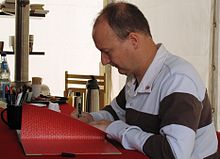
Thomas Brussig (born 1964) is a German writer best known for his satirical novels that deal with the German Democratic Republic.

Thomas Brussig (born 1964) is a German writer best known for his satirical novels that deal with the German Democratic Republic.
Brussig was born in East Berlin. After attending the "Heinrich-Hertz" School, he went on to train as a builder. In 1984, he finished school and training, and served in the East German National People's Army (German: Nationale Volksarmee or NVA). Brussig found it difficult to wield a weapon and had a hard time. He worked as a museum guard, cleaner and hotel porter among a variety of other odd jobs until the early 90s. In 1990, he studied sociology at the Free University of Berlin. He changed universities 3 years later to study the art of film-making. He graduated in the year 2000.
Thomas Brussig commutes back and forth from Berlin to Mecklenburg as a writer and is married.
Brussig's first novel, Wasserfarben ("Watercolors") was published in 1991 under the pseudonym "Cordt Berneburger." In 1995, he published his breakthrough novel, Helden wie wir (Heroes Like Us, FSG 1997), which dealt with the fall of the Berlin Wall. The book was a critical and commercial success and was later turned into a movie. [1] Two movies of his books have been released, "Helden wie wir" and "Sonnenallee".
{{cite book}}: CS1 maint: location missing publisher (link){{cite book}}: CS1 maint: location missing publisher (link)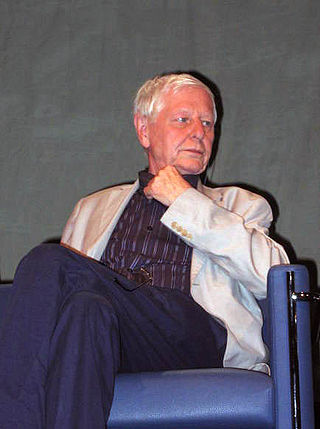
Hans Magnus Enzensberger was a German author, poet, translator, and editor. He also wrote under the pseudonyms Andreas Thalmayr, Elisabeth Ambras, Linda Quilt and Giorgio Pellizzi. Enzensberger was regarded as one of the literary founding figures of the Federal Republic of Germany and wrote more than 70 books, with works translated into 40 languages. He was one of the leading authors in Group 47, and influenced the 1968 West German student movement. He was awarded the Georg Büchner Prize and the Pour le Mérite, among many others.

Ernst Klee was a German journalist and author. As a writer on Germany's history, he was best known for his exposure and documentation of medical crimes in Nazi Germany, much of which was concerned with the Action T4 or involuntary euthanasia program. He is the author of "The Good Old Days": The Holocaust Through the Eyes of the Perpetrators and Bystanders first published in the English translation in 1991.

Katja Lange-Müller is a German writer living in Berlin. Her works include several short stories and novellas, radio dramas, and dramatic works.

Sarah Kuttner is a German television presenter and author.

Julia Franck is a German writer.

Michael Lentz is a German author, musician, and performer of experimental texts and sound poetry.
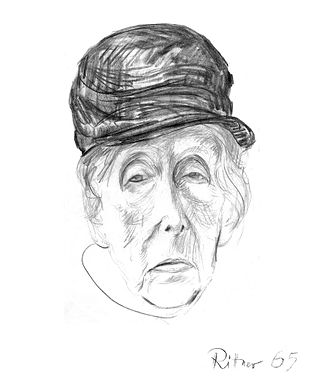
Annette Kolb was an author, journalist, emigrée and pacifist.

Katharina Hacker is a German author best known for her award-winning novel Die Habenichtse. Hacker studied philosophy, history and Jewish studies at the University of Freiburg and the University of Jerusalem. Her studies in Israel have been seen as an attempt to compensate for the strong anti-Semitic feelings of her Silesian grandmother. She did not finish her studies with an academic degree. Since 1996, she has been living as a freelance writer in Berlin. In 2006, she was the second writer to be awarded the German Book Prize for Die Habenichtse. In this and other works, Hacker examines the consequences of globalization and neoliberalism on the working life, social relations, and family interactions of her German protagonists.
Gerhard Löwenthal was a prominent German journalist, human rights activist and author. He presented the ZDF-Magazin, a news magazine of ZDF which highlighted human rights abuses in communist-ruled Eastern Europe, from 1969 to 1987. Löwenthal, who was known as a staunch anticommunist, was president of the Germany Foundation from 1977 to 1994.

Birgit Vanderbeke was a German writer.

Zsuzsa Bánk is a German writer.
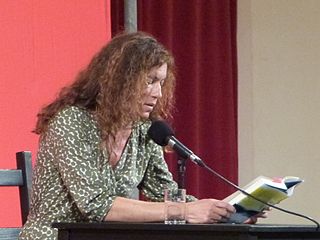
Anne Weber is a German-French author, translator and self-translator.

Oswald Rothaug was a Nazi jurist.

Silke Scheuermann is a German poet and novelist. She was educated in Frankfurt, Leipzig, and Paris. She is best known for her debut novel Die Stunde zwischen Hund und Wolf, which has been translated into ten languages including English. She has won numerous German and European literary prizes and fellowships, including the Georg-Christoph-Lichtenberg-Preis, the Leonce-und-Lena-Preis, the Hölty Prize, the Bertolt-Brecht-Literaturpreis, and a Villa Massimo fellowship.
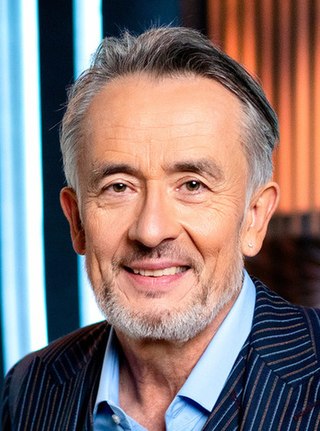
Gert Scobel is a German journalist, television moderator, author and philosopher.

Ulrike Almut Sandig is a German writer. She was born in Großenhain in the former GDR, and has lived in Riesa, Leipzig and Berlin. She studied religious studies and indology at university, and then studied at the German Institute for Literature in Leipzig.

Erasmus Schöfer was a German writer. He was a member of the German Communist Party and took part in resistance against the Vietnam War and rearmament, among others, and became the chronicler of resistance in Germany in his main work, a tetralogy of novels, Die Kinder des Sisyfos. It is based on recent history, from the protests of 1968 in West Germany up to the political and social developments of the 1980s until German reunification. He also wrote poetry, stories, plays and audio plays.

Pieke Biermann is a German crime writer, literary translator and journalist. She is the winner of the 2020 Leipzig Book Fair Translator's Prize. In the 1970s and '80s, she was an activist in the Berlin women's movement.

Agnes-Marie Grisebach was a German actor and writer. Her real name was Agnes Eggert, but she published under her birth name.

Jutta Heinrich was a German feminist writer.